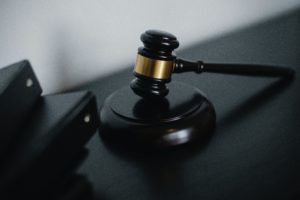Wrongful Death Claims in New Jersey
New Jersey police have stated that there were 563 deaths associated with motor vehicle accidents throughout the state in 2019. Many of these fatal collisions involved driver negligence. The shock of losing a loved one is especially devastating when evidence shows that another person’s negligence was a causal factor in a collision.
Motor vehicle accidents are not the only way that a family might suffer the untimely death of a loved one. Fatal personal injuries often occur as a result of a crime, workplace accidents, or another type of incident as well. When death is a result of a wrongful act or another person’s neglect, New Jersey law allows an immediate family member to file a wrongful death claim in a civil court. The following list shows conditions that must be met to constitute a legitimate claim:
- Decedent would have had grounds for a personal injury claim if he or she had survived
- Claim is filed within the statute of limitations
- Person receiving damages is an immediate family member
- Damages listed are valid according to state law
Each of these requirements must be met in order to file a wrongful death claim in a New Jersey court. No two cases are exactly the same; therefore, an issue that is relevant in one case may not apply to another.
The Decedent Could Have Filed an Injury Claim
State law provides recourse to grieving families when a loved one has suffered fatal injuries and is therefore unable to pursue justice on his or her own behalf against the person deemed responsible for the injuries.
 The Claim Is Within the Statute of Limitations
The Claim Is Within the Statute of Limitations
To constitute eligibility for a wrongful death claim, documents must be filed in court according to the state’s statute of limitations, which, in New Jersey, is typically two years from the date of the decedent’s passing. It’s helpful to speak with a Morristown personal injury lawyer for clarification regarding such laws.
The Claim Is Filed by Qualifying Decedents
Every state has its own laws regarding who may receive compensation for damages in a wrongful death case. In New Jersey, the person in question must be an immediate family member of the decedent and is either entitled as an heir or was dependent on the decedent at the time of his or her death. Such laws are complex, which is why it’s a good idea to meet with a Morristown personal injury lawyer ahead of time to ensure that all requirements for a specific case have been met.
Some Damages Are Not Compensable in New Jersey
A plaintiff may seek maximum compensation for damages. Such damages often include loss of financial support as well as potential income that a decedent may have been expected to earn if he or she had survived. In addition to financial support, damages may also include funeral or medical expenses associated with a loved one’s death. In this state, however, emotional distress does not qualify as a compensable damage. Additionally, a New Jersey wrongful death plaintiff cannot seek
punitive damages.
Contact a Morristown Personal Injury Lawyer
Losing a family member because of a wrongful act or the negligence of another person is a devastating experience. It is understandable that a grieving family would want to seek justice on behalf of a fatally injured loved one. There is no replacement for the loss of a human life; however, meeting with an experienced personal injury law attorney is often the first logical step to take to seek justice. Call the Morristown, New Jersey, law office of Gregg A. Wisotsky, Esq. toll-free at (973) 898-0161 today.













Leave a Reply